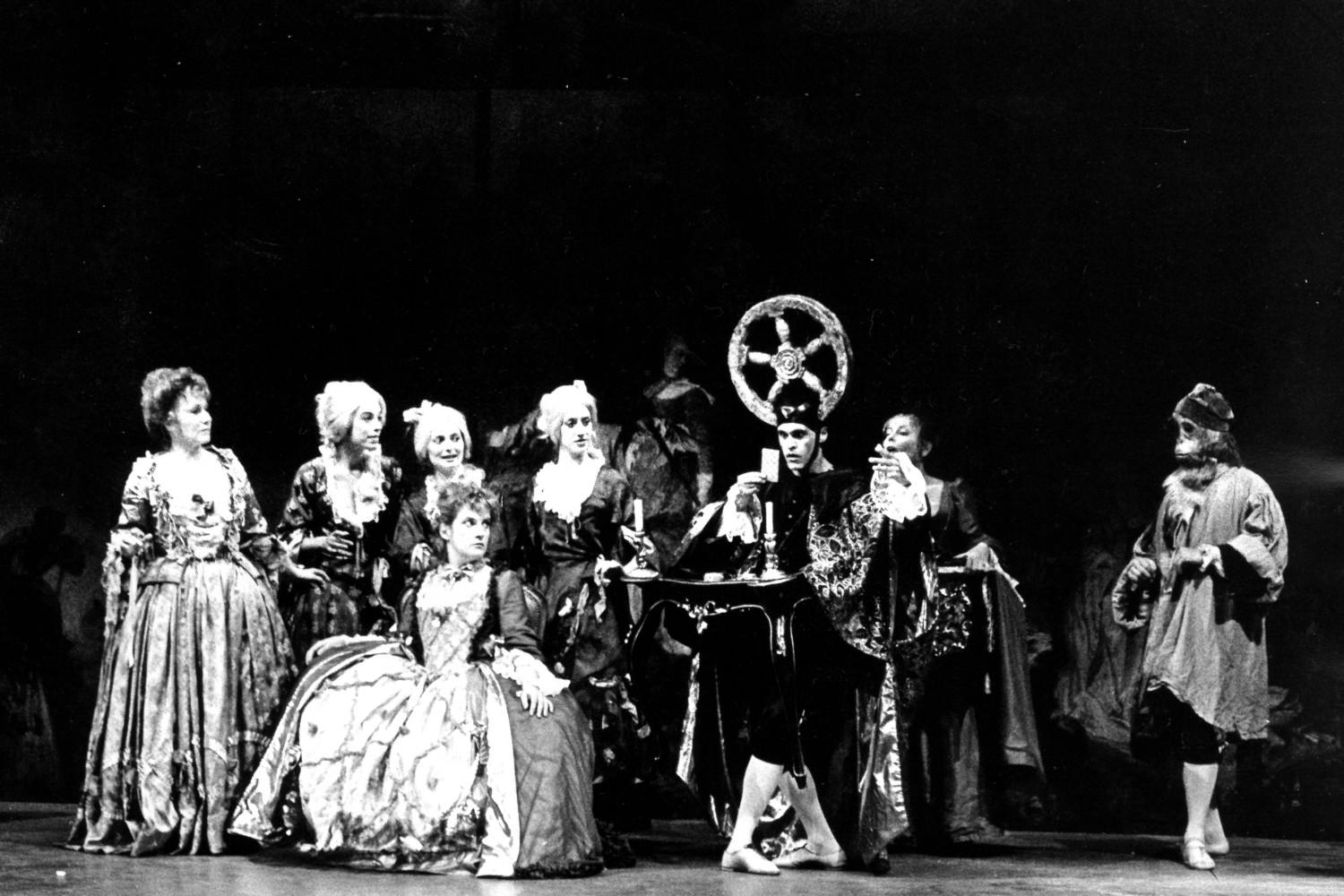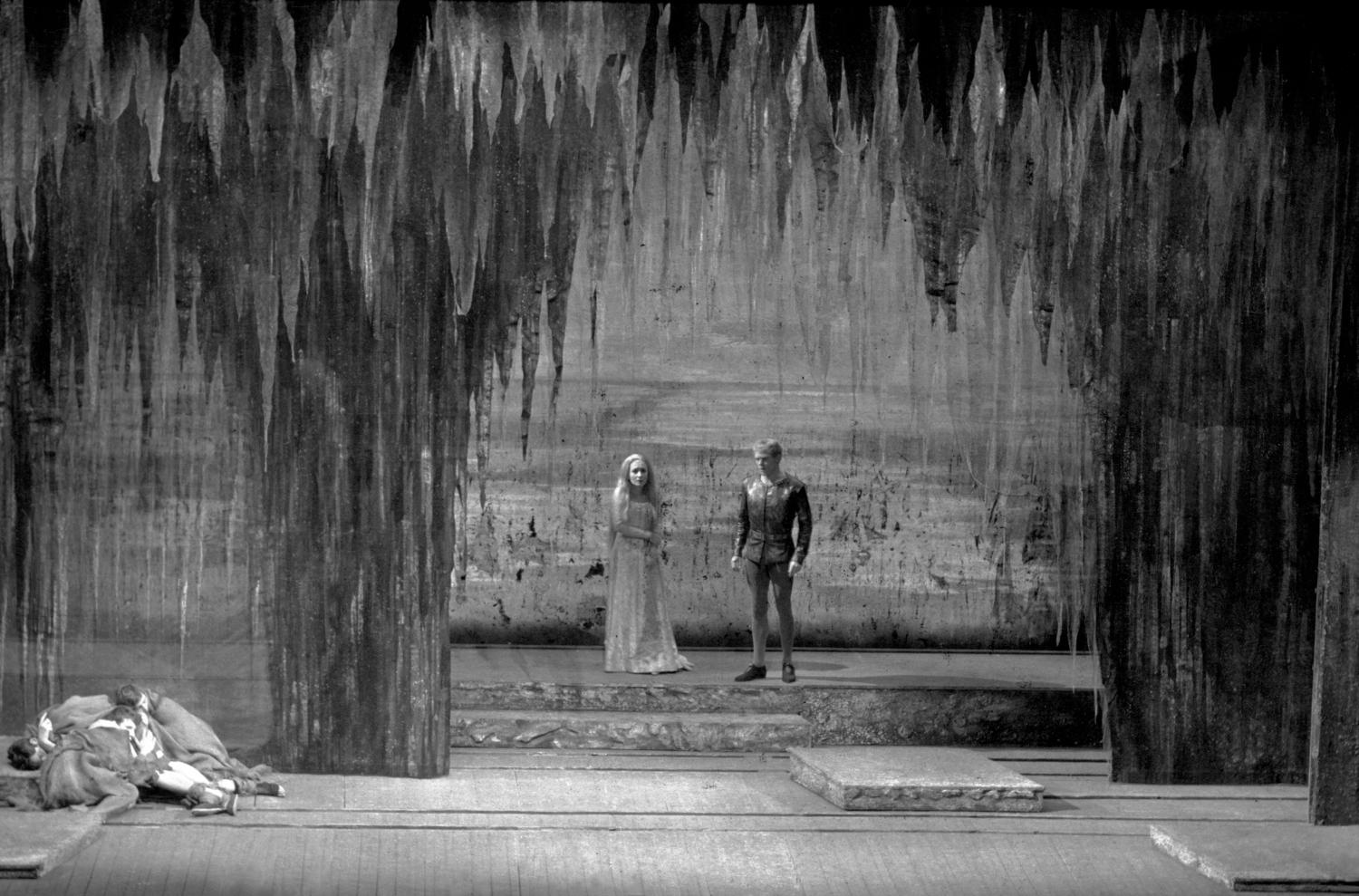A 2024 PROGRAMME IN TUNE WITH ITS HISTORY
Share
The Festival d'Aix-en-Provence presents an unparalleled event every year, but its main themes are rooted in 75 years of prestigious and unique artistic history. The 2024 vintage is built around two main themes: French opera and Baroque music – both of which have been at the heart of the Festival's repertoire since it was founded in 1948 by Gabriel Dussurget.
Iphigénie en Tauride was first performed at the Festival in 1952 in an expressionist set designed by André Masson; in 1955, Orphée et Eurydice continued the exploration of Gluck's works in French, making the composer one of the pillars of the Festival's repertoire. Later, Iphigénie en Aulide was programmed in concert version by Louis Erlo (1987), under the musical direction of John Eliot Gardiner. The double bill of 2024 Iphigénie en Aulide / Iphigénie en Tauride is thus both an echo of the Festival's musical roots and a novel experience – Corinne Winters taking up the challenge of singing both roles in the same evening.
Even more than those of Gluck, the operas of Jean-Philippe Rameau are particularly present in the Festival's programming, marking important milestones in the rediscovery of his work in the 20th century. In 1956, the Festival revived Platée, in a production that revealed tenor Michel Sénéchal in the title role, and at the same time confirmed Aix-en-Provence as an essential venue for baroque opera.
Rameau became the spearhead of Louis Erlo's programming in the 1980s and 1990s; in his first year as director, Erlo encouraged the world premiere of Les Boréades (1982) and in 1983 presented Hippolyte et Aricie, with Jessye Norman as Phèdre. The success of Les Indes Galantes in 1990 and Castor et Pollux in 1991 confirmed the affinity of Aix-en-Provence and its audiences with Rameau.
In 2024, the premiere of Samson will mark a new milestone in the exploration of Rameau's work in Aix-en-Provence. After the libretto had been censored and the score largely reutilised in other works by Rameau, Claus Guth and Raphaël Pichon will now produce their own original version.
In line with this enthusiasm for early music, the Festival has presented works by Claudio Monteverdi from its earliest years, at a time when these scores were rarely performed: in 1950, Ernst Bour conducted a concert version of L'Orfeo; L'incoronazione di Poppea was one of the highlights from the 1960s onwards, while many evenings during the various editions of the Festival were devoted to the rediscovery of the composer's madrigals. This summer, the Festival presents Il ritorno d'Ulisse in patria, following on from the 2022 season, in which Leonardo García Alarcón conducted L'Orfeo and L'incoronazione di Poppea.
Another work from the French opera repertoire, Debussy's Pelléas et Mélisande (1902), returns in 2024 after its first staging on the Théâtre de l'Archevêché in 1966. The production showcased the excellence of the French musical teams, from the Orchestre de la Société des Concerts du Conservatoire – the future Orchestre de Paris – conducted by Serge Baudo to Gabriel Bacquier, applauded for his interpretation of Golaud. On the strength of its success, the production was revived in 1968 and 1972 in this version with dreamlike sets designed by Jacques Dupont. In July 2024, the Festival will revive the work in Katie Mitchell's breathtaking staging (2016), with Susanna Mälkki conducting.
French music and baroque music are always in dialogue with Mozart: La clemenza di Tito (1791), the composer's last opera, became part of the Festival repertoire on the initiative of Bernard Lefort in his first year as Festival director (1974). A work not often produced at the time, it confirmed the Festival's vocation to propose operas that are rarer than those presented on other European opera stages. Several productions of La clemenza have punctuated the history of Mozart in Aix-en-Provence: after the staging by Antoine Bourseiller (1974), Michaël Cacoyannis in copper-coloured sets (1988), Lukas Hemleb (2005), and the collaboration of conductor Sir Colin Davis and director David McVicar (2011), Mozart's last opera seria returns to the Festival in 2024. Karine Deshayes and Pene Pati will perform for the first time the virtuoso and poignant arias of Vitellia and Titus, torn apart by political plots and their passions for love, under the musical direction of Raphaël Pichon at the head of Pygmalion.
Finally, the desire to cover four centuries of opera, from Monteverdi to the works of the 20th century, is a constant preoccupation of the Festival d'Aix. Represented in 2024 by Peter Maxwell Davies' Eight Songs for a Mad King and György Kurtág's Kafka-Fragmente (Songs and Fragments), music theatre has been a pillar of the Festival d'Aix since the 1980s, from the programming of Luciano Berio's Passagio (1983) to the first performances of Georges Aperghis' Tour de Babel - Détails et Conversations (1986). The Festival's numerous productions since the 2000s are part of this tradition, particularly those of recent years, such as Woman at Point Zero by Bushra El-Turk (2022) and The Faggots and their Friends between Revolutions by Philip Venables and Ted Huffman (2023).
Anne Le Berre
Memory and Heritage Project Manager

